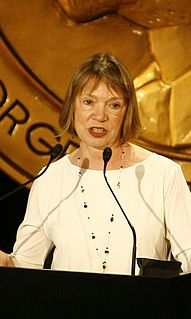A Quote by George Will
Concerning [postmodern] ideas, let us not mince words. The ideas are profoundly dangerous. They subvert our civilization by denying that truth is found by conscientious attempts accurately to portray a reality that exists independently of our perception or attitudes or other attributes such as race, ethnicity, sex or class.
Related Quotes
Truth has power. And if we all gravitate toward similar ideas, maybe we do so because those ideas are true...written deep within us. And when we hear the truth, even if we don't understand it, we feel that truth resonate within us...vibrating with our unconscious wisdom. Perhaps the truth is not learned by us, but rather, the truth is re-called...re-membered...-re-cognized...as that which is already inside us.
Ideas are dangerous, but the man to whom they are least dangerous is the man of ideas. He is acquainted with ideas, and moves among them like a lion-tamer. Ideas are dangerous, but the man to whom they are most dangerous is the man of no ideas. The man of no ideas will find the first idea fly to his head like wine to the head of a teetotaller.
We sift reality through screens composed of ideas . (And such ideas have their roots in older ideas.) Such idea systems are necessarily limited by language , by the ways we can describe them. That is to say: language cuts the grooves in which our thoughts move. If we seek new validity forms (other laws and other orders) we must step outside language.
To criticize a person for their race is manifestly irrational and ridiculous, but to criticize their religion, that is a right. That is a freedom. The freedom to criticize ideas, any ideas - even if they are sincerely held beliefs - is one of the fundamental freedoms of society. A law which attempts to say you can criticize? and ridicule ideas as long as they are not religious ideas is a very peculiar law indeed.
Writing engenders in us certain attitudes toward language. It encourages us to take words for granted. Writing has enabled us to store vast quantities of words indefinitely. This is advantageous on the one hand but dangerous on the other. The result is that we have developed a kind of false security where language is concerned, and our sensitivity to language has deteriorated. And we have become in proportion insensitive to silence.

































